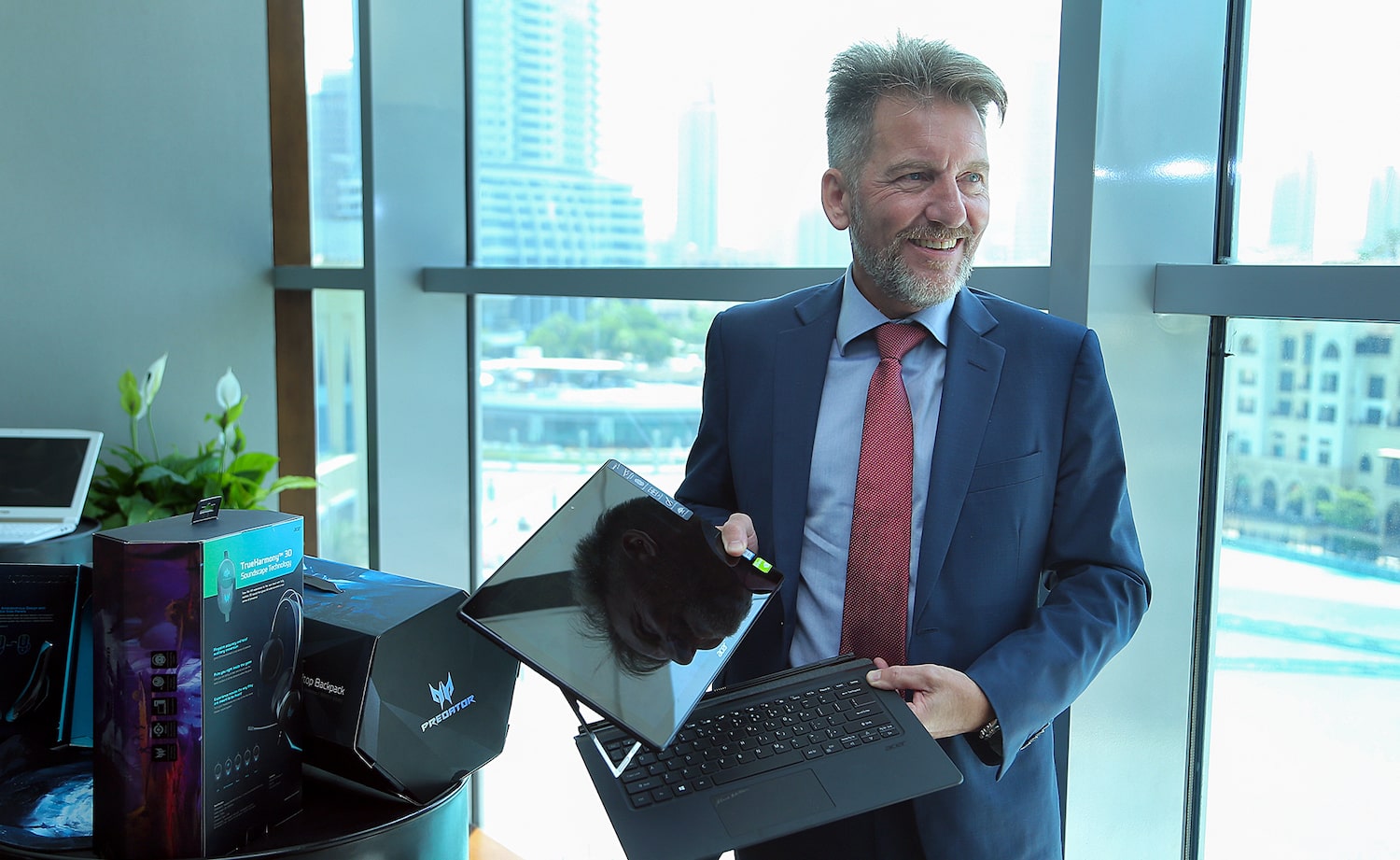Acer has been leading the charge when it comes to sustainability and humanity in the space of personal desktop computers. From taking a look at their supply chain partners and process down to the material used and even the reusability of the manufacturing waste.

Paul Collins, General Manager at Acer Middle East and Africa, answers some of our questions around Acer’s role in humanity and sustainability.
What is the main inspiration of “Made for Humanity”?
It is now scientific consensus that human induced climate change is one of humanity’s great challenges in the 21st century. Acer has been driving to be a more socially responsible company for over 10 years, since the introduction of the first Chromebook, with its technology requiring less electricity, smaller chips and so on, to drive a solution. We have been developing this goal with multiple actions, both internally, technologically, and with our partners to reduce our footprint on the world. Project Humanity is the culmination and consolidation of these efforts into a comprehensive strategy to meet the world’s changing needs for the next 50 years.
What is the ultimate goal?
I.e. what would be the achievement/goal, once achieved you can say that project humanity is a success.
This is tricky in that every human being and company needs to be involved in addressing this crisis. Acer will continue to hold ourselves and our partners (manufacturers, supply chain etc.) accountable in making a difference in our potential sustainability goals. Project Humanity does not have an end goal, it is a new way of living and doing business for Acer.

Which area is most important to Acer’s outlook on sustainability in terms of:
- Logistics / supply-chain (shipping, delivery)
- Packaging (materials, one-time usage)
- Device material (material used to make the device)
- Recyclability (once the device is done, what happens)
Acer has found that we are able to impact many areas in the sustainability cycle. We have internal initiatives such as “30 Green actions” encouraging staff to improve their personal impact by implementing 30 green changes in their lives. Internationally we have met our energy saving goals in 2020 by reducing our carbon emissions by 60% and as a member of the RE100 group we are committing to being an energy neutral company by 2035. These and other actions have been recognized by the Wall Street Journal who named Acer as one of the top 100 sustainable managed companies worldwide. As part of our total initiatives it means we must address our entire ecosystem including logistics, supply chain and manufacture. Manufacture would include not only using recycled materials but also fully recyclable packaging. Both of these features are included in our new Vero range of consumer and commercial products, allowing home users and CIO’s alike to make sustainable IT purchase choices in the future.

What are the current regional programs championed by Acer in the area of recycling and e-waste?
Locally we are driving a campaign to recycle all E-Waste, including Acer products and products from other brands, both responsibly and professionally at our expense. We recognise the difficulty that people have in the disposing of used electronic products and as such, these can be dropped at our offices for proper disposal. This is a continually evolving service, so please stay tuned for enhancements in regard to recycling of used devices locally.
Acer is also constantly innovating to bring the most sustainable products and solutions to the market. For instance, the recently launched a lineup of green PCs with its Aspire Vero series which uses 30% post-consumer recycled plastic in the chassis and 50% PCR plastic in the keycaps. From PCs to peripherals, Vero devices share certain green guidelines, such as utilizing post-consumer recycled (PCR) plastic and shipping in recyclable packaging. The Aspire Vero laptops also feature inverted R+E keys in a quirky attempt to emphasize the message of ‘reduce, reuse, recycle’ among users.





